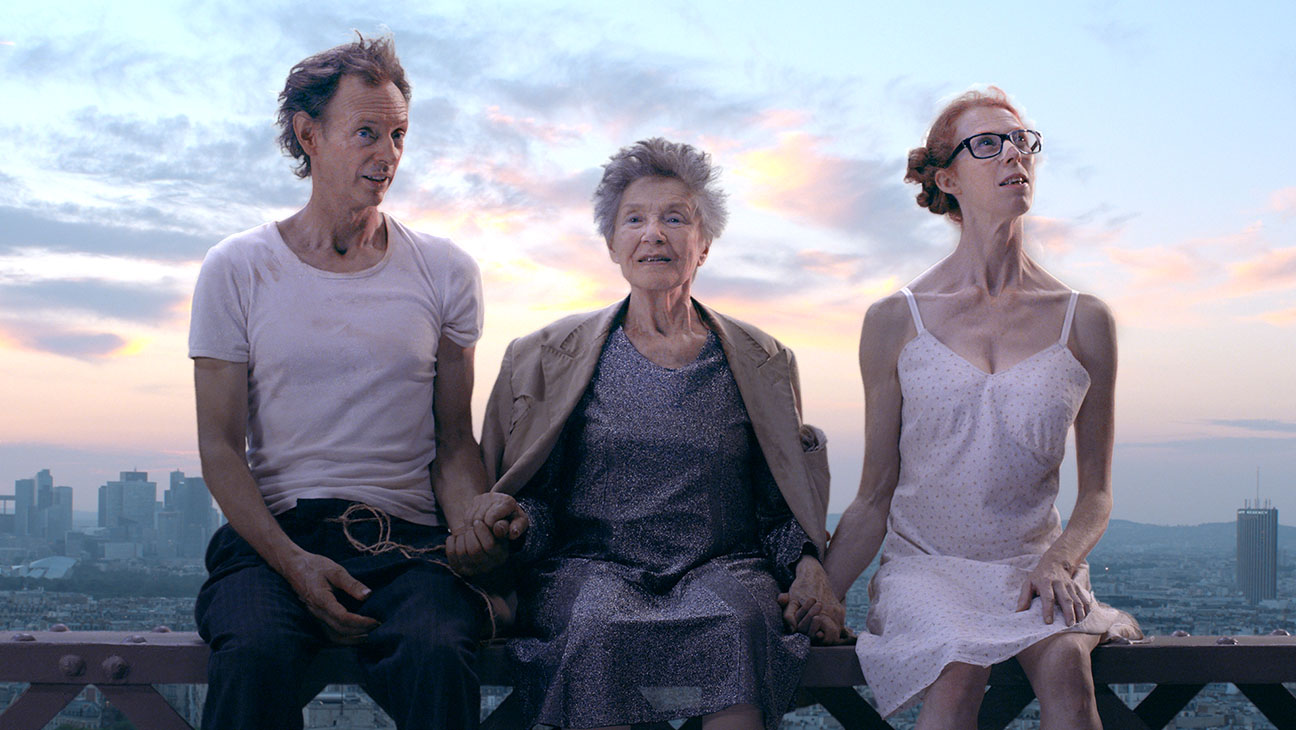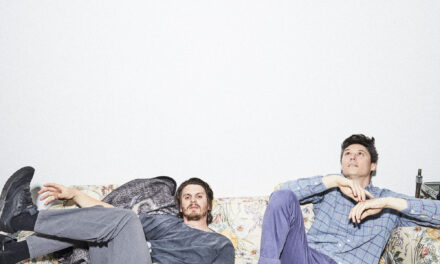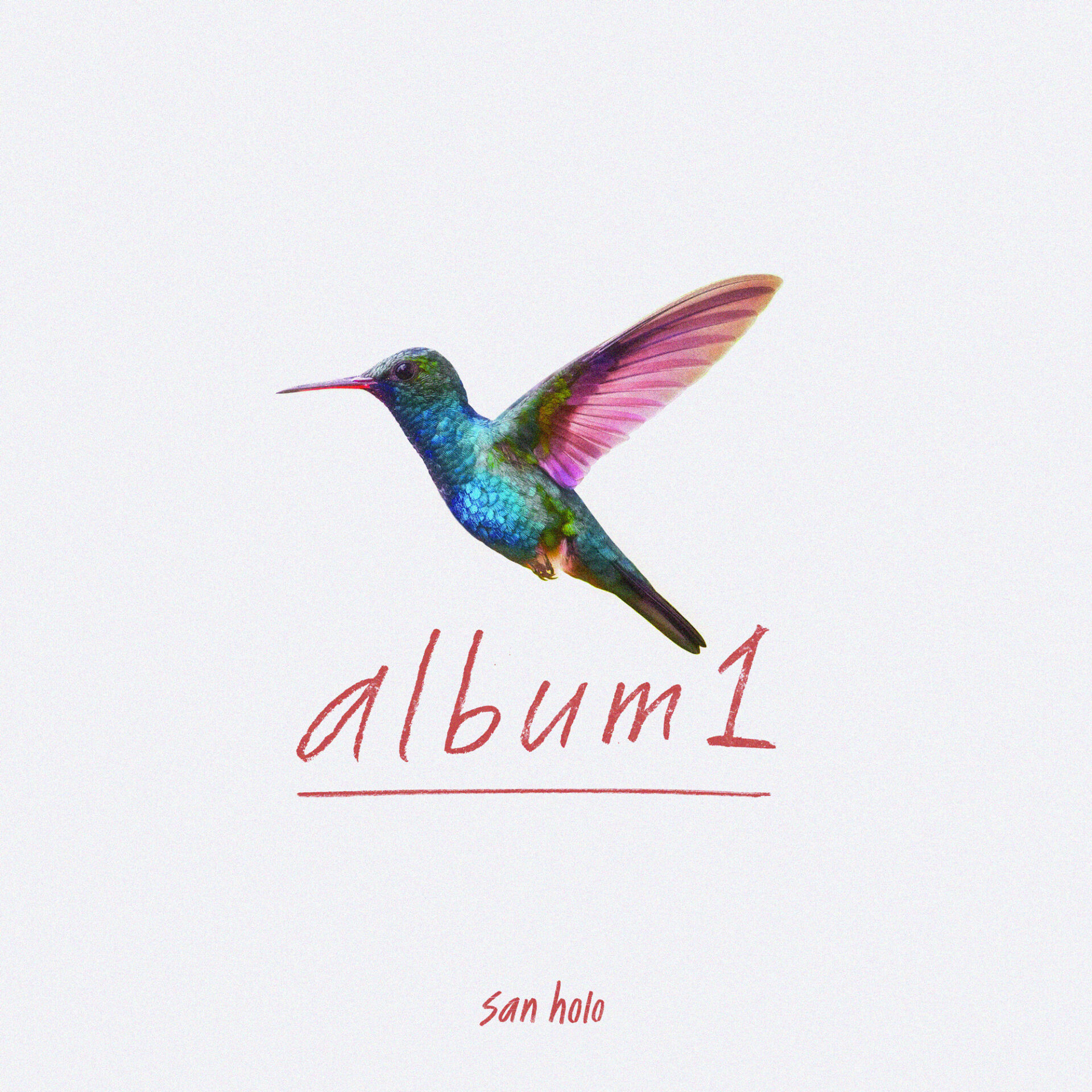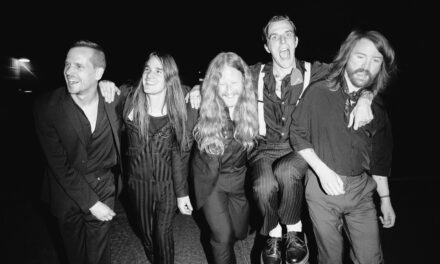There’s nothing wrong with a throwback to previous eras. Certain styles and art forms slip out of popular fashion for a number of reasons, not the least of which is the progress of technology and the potential new modes of artistic expression that accompany it. However, it can be refreshing to take a step back and revive something old simply for the sake of doing so. This seems to be the case for Lost in Paris, a loving recreation of early vaudevillian cinema reimagined for the modern age, and while I wouldn’t go so far as to call the film a must-see, it’s a novelty that will appeal to a very specific niche audience.
Directed by Fiona Gordon and Dominique Abel, Lost in Paris stars the directors as fictionalized versions of themselves. Fiona is a Canadian who heads to Paris to track down her Aunt Martha (Emmanuelle Riva), who suffers from dementia and has consequently gone missing. While there she runs into Dom, a homeless drifter with little sense of public decorum or personal boundaries. The pair bumble their way through one comic setpiece after another, ranging from a visit to a funeral they believe to be Martha’s (it isn’t) to a farcical climb up the Eiffel Tower.
The primary source of comedy in Lost in Paris is the sort of over-the-top slapstick and situational absurdity that one would find in a classic Buster Keaton or Charlie Chaplin film, though the majesty of the silent era’s necessarily broad performances is lost in the translation to modern talkies. There is a definite charm in watching our three leads dance around one another, both figuratively and literally, as they bumble form one bizarre moment to another, and the faux Paris in which they reside is not lacking for attractiveness. There’s a low-budget transparency that emphasizes the artificiality of the sets, like a Wes Anderson film without the intricate attention to detail. There are few films that look and feel like Lost in Paris, which is a definite point in its favor.
However, Lost in Paris doesn’t seem to have much ambition beyond being a fairly standard update of the vaudeville formula for the age of sound and color. There’s no commentary on the art form it’s reviving, no acknowledgment that a modern audience may want more from their characters than broad archetypes designed as absurdist punching bags for the weird world they inhabit. And there’s an unfortunate residue of classic masculine archetypes of the silent era in Dom’s characterization, as a simple change in soundtrack would drain all the whimsy out of how he stalks Fiona through Paris and demonstrate just how creepy that supposedly charming behavior actually is.
But to want more from Lost in Paris might be to miss the point. This is a vaudeville genre revival, without any attendant frills or pretentions about what it is. That makes it a curiosity and a novelty that will assuredly draw fans from the most classically minded cinema connoisseurs, and there’s likely enough here to entertain the average viewer for its entire eighty-seven minutes. I just wouldn’t expect this film to inspire future filmmakers in the same way it is so clearly inspired by the acts of the early twentieth century.













